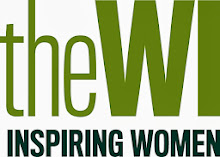Central
Hall Westminster was packed last Wednesday afternoon when 2,500 dairy farmers
from across the country gathered to show their solidarity against those dairy
processors who propose to take up to 2p off the price paid for a
litre of British milk.
A
Voluntary Code of Practice for contracts has been some time in the
making and on Wednesday it was said agreement was needed on three
words to finalise it, with both sides "conceding a
lot". Many were calling for legislation to make pricing
fair. Agricultural Minister Jim Paice MP felt this would not
happen. A call for the return of the Milk Marketing Board style body was
rejected too, and emotions were running high.
Mr
Paice had gone shopping that day and he brought to the podium a pint of milk
for which he paid 49p, and a pint of bottled water for which he paid 53p,
clearly demonstrating that something is wrong somewhere.
I
sat in front of a dairy farming family from Derbyshire; the farmer and his
wife and their two sons of just six and seven years of age. The
parents, well aware that the boys’ hopes to grow up and continue the family
farming tradition were at risk, deemed this crisis summit urgent enough that
their sons should know what was going on, and they sat as good as gold
throughout the whole of the proceedings.
The
WI continues to stand by dairy farmers and has actively done so since 2005 when
members voted on a resolution to "urge WI members to do all in their power
to raise public awareness of the unfair difference between the retail prices of
milk and the price paid to farmers". The WI's Great Milk
Debates across the country did indeed raise that awareness, and in the years
since we have seen some progress with more retailers establishing dedicated
relationships with the dairy farmers that supply them with fresh milk. Yet this progress has not gone far
enough. Time and time again, we see the
same cycle of farmers losing money on every litre of milk that they
produce. This tells me that the supply
chain is failing to function properly. All
parts of the supply chain stand to benefit from maintaining a profitable,
productive and healthy dairy industry, yet as events over the past two weeks
have again shown us, the balance is wrong.
This problem was an issue the WI took up again in our 2010 Mission Milk
campaign with the NFU. Now yet again, we
are getting behind our dairy farmers.
It
is a very sad truth that dairy farms have been closed across the country in
high numbers in recent years: producer numbers for England and Wales
stood at 10,724 in May 2012; a fall of 172 or 1.6% over the last 12
months. Since 2000, the number of UK
dairy farmers has literally halved. The Derbyshire farmer told me he
thought he had about another six months for "things to pick
up" before the bank came knocking at his door.
The
British public has to get behind these dairy farmers. Their herds produce
liquid milk of a quality and hygiene standard higher than in any other country
and of course there is a growing demand for British, local, quality, assured
and traceable food; for products that consumers can trust and support. With fewer dairy farmers the risk that this
will lead to less product choice is very real.
Our farmers are custodians of the countryside who provide work for many
more industries such as veterinary practices, animal feeds, engineering and
more. And indeed, these industries were also represented at the summit;
both in solidarity with the dairy industry but also in fear for their own.
As
consumers we can all play a role in encouraging retailers and processors to
step up to the challenge and do the right thing by British dairy farmers. Do take a look at the NFWI website to see
what you can do to help.
